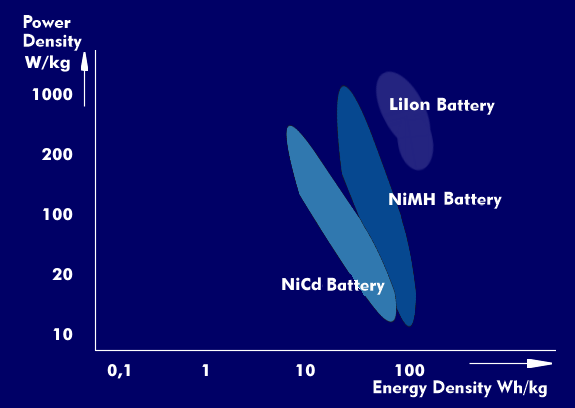power density
Power density is a characteristic value used in various contexts in RF technology, noise, magnetic field densities, power semiconductors, capacitors and supercapacitors, and especially batteries.
For batteries, power density refers to the absolute power of the battery relative to its volume, power volume, given in watts/volume(W/l), and weight, power weight, given in watts/gram (W/g).
The power density of batteries is a measure of current-carrying capacity and fast-charging capability. In addition, high power density makes mobile devices lighter and allows them to operate longer with the same discharge. For electric vehicles, power-to-weight ratio directly affects the acceleration of the electric vehicle. Like energy densities, power densities depend on the battery type. Lithium polymer batteries and lithium iron phosphate batteries have the highest power density values. In high power versions, the values range from 1 kW/kg to 5 kW/kg.
Compared to batteries, supercapacitors have power densities that are several orders of magnitude higher. They reach values of 10 kW/kg and more.
For power semiconductors, the power density is given in watts/length (W/mm). For example, gallium nitride has power densities between 5 W/mm and 12 W/mm.

